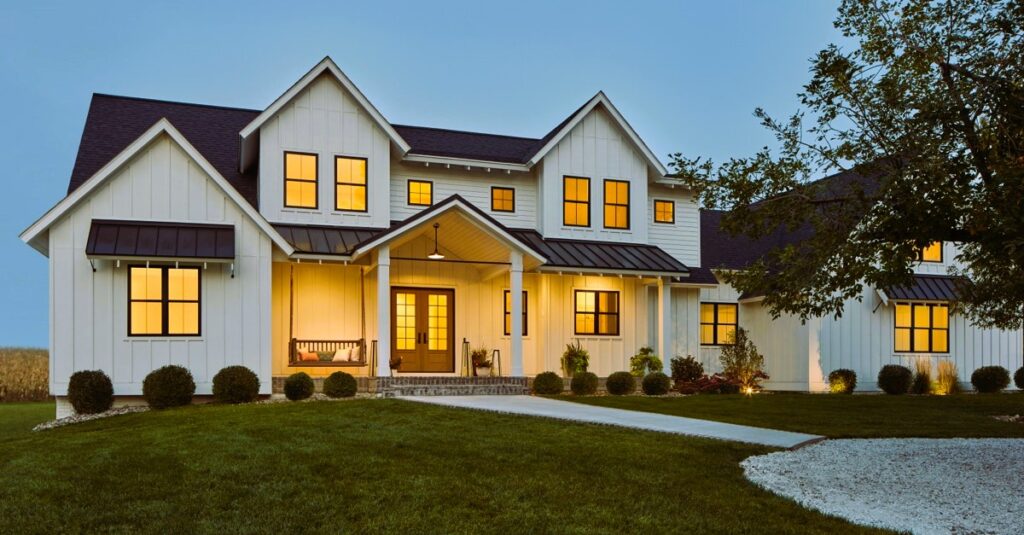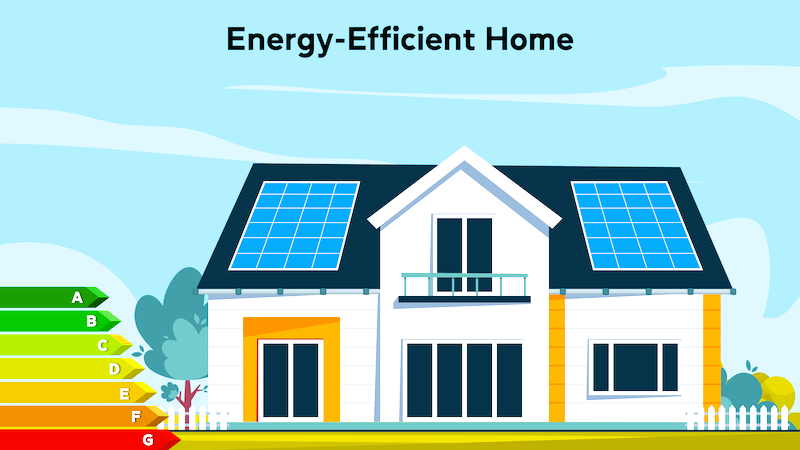Windows play a crucial role in the energy efficiency of a home, especially in the diverse and challenging climates of Canada. With extreme temperature variations throughout the year, it is essential to understand how windows impact energy consumption and comfort. In this article, we will explore the significance of windows in energy efficiency, discuss the key factors to consider when choosing energy-efficient windows for Canadian climates, and highlight the benefits they offer to homeowners.
- Heat Gain and Loss
Windows are primary sources of heat gain and loss in a home. In colder Canadian climates, windows can account for a significant portion of heat loss during the winter. Conversely, in hotter regions, windows can allow excess heat to enter the home, resulting in increased cooling needs. Energy-efficient windows help mitigate these issues by reducing heat transfer and maintaining comfortable indoor temperatures year-round.
- Insulation and U-Factor

One of the critical factors to consider when selecting energy-efficient windows is their insulation capabilities, represented by the U-factor. The U-factor measures the window’s ability to resist heat transfer, with lower values indicating better insulation. In colder Canadian climates, it is recommended to choose windows with low U-factor ratings to minimize heat loss and maximize energy efficiency.
- Solar Heat Gain Coefficient (SHGC)
The solar heat gain coefficient (SHGC) measures the amount of solar radiation that passes through a window. In hotter Canadian climates, selecting windows with a lower SHGC helps minimize heat gain from the sun, reducing the reliance on air conditioning systems and maintaining a comfortable indoor environment.
- Low-E Coatings
Low-emissivity (Low-E) coatings are thin layers applied to window glass to improve energy efficiency. These coatings help reduce heat transfer by reflecting infrared radiation while allowing visible light to pass through. Low-E windows are particularly beneficial in Canadian climates, as they can keep homes cooler in the summer and warmer in the winter, reducing reliance on heating and cooling systems.
- Multiple Panes and Gas Fills
Windows with multiple panes and gas fills between them provide enhanced insulation compared to single-pane windows. Double-pane or triple-pane windows create an additional barrier to heat transfer and improve energy efficiency. Argon or krypton gas fills between the panes further enhance insulation properties by reducing convection within the window.
- Weatherstripping and Window Seals
Proper weatherstripping and window seals are crucial for preventing drafts and air leakage around windows. Poorly sealed windows can significantly impact energy efficiency by allowing cold air infiltration in the winter and hot air penetration in the summer. High-quality windows come with effective weatherstripping and durable seals, ensuring airtightness and minimizing energy losses. Drought tolerant plants, we have prepared a detailed guide for you.
- Condensation Control
Condensation on windows can be a concern in colder Canadian climates. Energy-efficient windows often incorporate features such as warm-edge spacers and insulated frames, which help reduce the likelihood of condensation by maintaining warmer interior glass surfaces.
- Benefits of Energy-Efficient Windows

Investing in energy-efficient windows offers numerous benefits for Canadian homeowners:
- Reduced Energy Costs: Energy-efficient windows can significantly lower heating and cooling expenses by reducing the reliance on HVAC systems.
- Enhanced Comfort: With better insulation and reduced drafts, energy-efficient windows provide a more comfortable indoor environment year-round.
- Noise Reduction: Energy-efficient windows also offer improved sound insulation, minimizing external noise infiltration for a quieter home.
- UV Protection: Many energy-efficient windows have built-in UV protection, which helps prevent fading of furniture, carpets, and other interior elements caused by sunlight exposure.
- Environmental Impact: By reducing energy consumption, energy-efficient windows contribute to a greener and more sustainable living environment.
Conclusion
Windows have a substantial impact on the energy efficiency, comfort, and overall performance of homes in Canadian climates. Choosing energy-efficient windows with low U-factor ratings, appropriate SHGC values, and features such as Low-E coatings, multiple panes, and effective weatherstripping is crucial for maximizing energy savings and maintaining a comfortable indoor environment. By investing in energy-efficient windows, homeowners can not only reduce their energy costs but also contribute to environmental sustainability.

